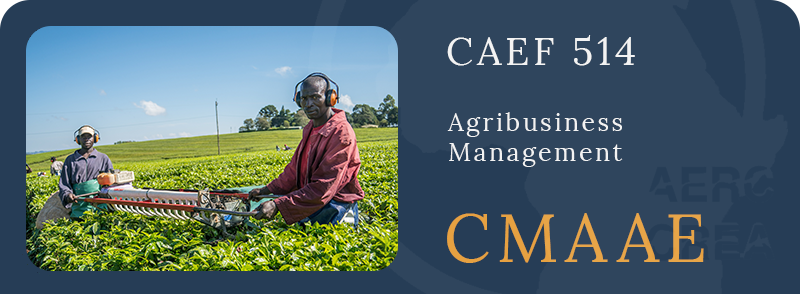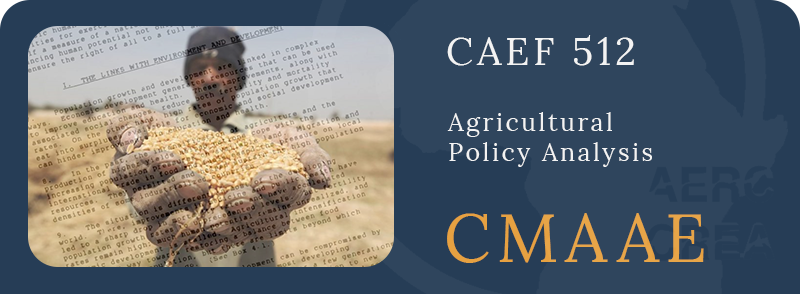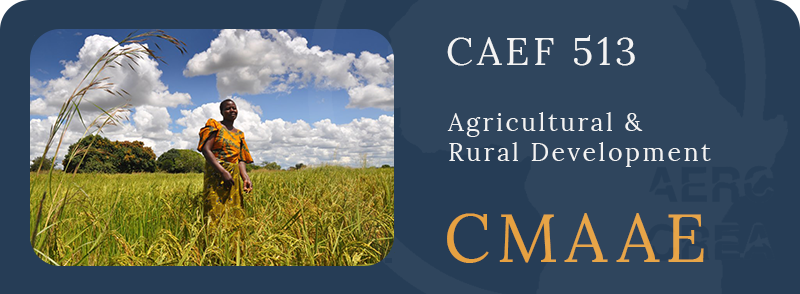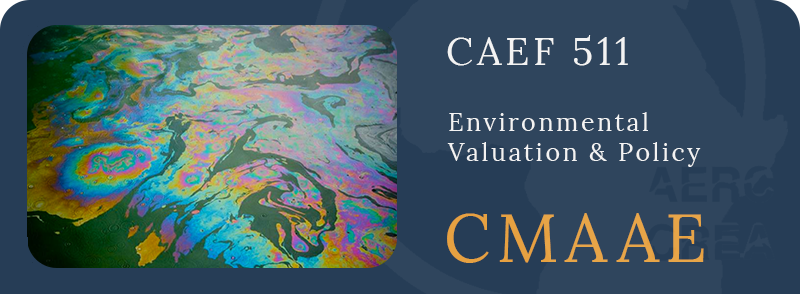
Agribusiness Management
The modern agribusiness industry includes commercial farmers, businesses providing them with supplies and services, businesses adding value to farm products and those businesses that facilitate the marketing of agricultural products to an ever-growing marketplace. It addresses the ‘farm to fork’ paradigm. This sector operates in a complex and uncertain environment and is continuously facing new challenges including technological developments in production, manufacturing and marketing processes, heightened environmental concerns and increased nutritional awareness throughout the community. It is however expected that it must generate competitive and sustainable financial returns over the short and long run.
The overall objective of this course is to generate students’ understanding of the management of food and agribusiness firms from a managerial perspective and the importance of strategic management in agribusiness. The course will enable students to actively use the principles and techniques explained to them during the course in a global, ever changing, competitive and even hostile environment.

Agricultural Policy Analysis
By the end of the course, the learner will be able to:
- Understand the main elements of the major challenges facing agricultural policymakers in Africa;
- Identify and define the various dimensions of analytical frameworks for agricultural policy analysis;
- Understand major policy issues and drivers of change in the food and agricultural sector of the world;
- Interpret and critique the most important literature in each of the key dimensions;
- Apply any of the dimensions in a practical case study of policy analysis;
- Have an appreciation of the limitation of the neo-classical framework by also understanding the politics of agricultural policy;
- Have an appreciation of the most recent work on the political economy of agricultural policy in developed as well as developing countries;
- Understand the nature of the ‘farm problem’ and how this links to domestic and international trade policy; and
- To effectively participate in contemporary agricultural policy debates.

Agricultural and Rural Development
At the end of the course, the students are expected to be:
- Conversant with the theoretical approaches and perspectives of Rural and Agricultural Development;
- Be knowledgeable on issues, challenges and options facing the contemporary agricultural and rural development sector;
- Undertake analysis of the agricultural and rural development issues and problems in Africa and other developing country context.

Environmental Valuation and Policy
At the end of the course, students should be able
to:
- Identify market failures in the
environmental sector; recognize their different manifestations in different
environments
- Understand and apply specific
environmental valuation methods
- Design and conduct economic research
with environmental valuation components
- Understand and apply specific policy instruments to deal with market failures in the environmental sector